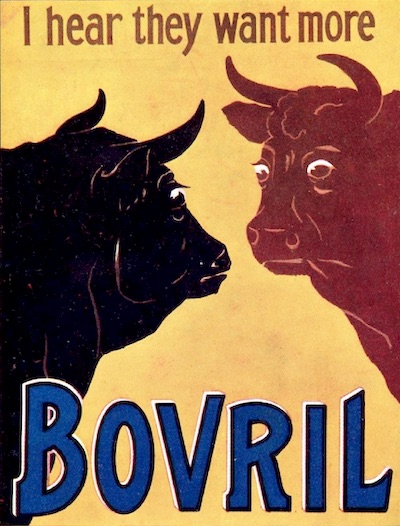OUR CRICKETING SYBARITES.
Punch, May 31, 1905
Dear Mr. Punch,—The fact that the Australians have petitioned for shorter hours of play, and the action of one of our own first-class bowlers, who won a recent match for his side by going off the field for a bath, resting in the pavilion for an hour, and finally emerging much refreshed to despatch the tail-end of the opposing team, are sure to establish a precedent. Cricketers are not the hardy race they used to be. We may look for some such items of cricket gossip as the following during the remainder of the season:—
The sensational strike which led to the defeat of England by 386 runs in the last test match has, we are glad to say, at length been settled. A compromise has been arranged. Instead of iced drinks at the end of every third over, for which the professionals agitated, there will be—in addition to the luncheon and tea intervals—a cucumber-sandwich interval at 12.30, a cold snack at 3.15, a doze at 5.20, and a champagne-cup break at 6.30. These reforms having met with the approval of the strikers, it is expected that England will be strongly represented in the next match.
____________
Messrs. Cabbage and Sons, Athletic Outfitters, announce a new Short Slip Deck Chair. Invaluable to first-class cricketers when the wicket is dry. Hustle is the curse of the present age. Take it easy. 10s. 6d. (or, with shandigaff fountain, 12s. 8d.). A Leicestershire professional writes:—“I used your Short Slip Deck Chair when we played Derbyshire, and managed to get through a whole innings without my usual forty winks in the pavilion.”
_____________
Sport or Foolhardiness? Although the weather was extremely warm last Monday, Mr. C. McGahey successfully accomplished his feat of fielding all through the morning until the luncheon interval without lying down. Interviewed by our representative, he said that he was certainly fatigued, but was glad that he had gone through with it, as it showed that the thing could be done. As a proof of the dangerous spirit of emulation which this feat of endurance has aroused in cricketing circles, we may state that Mr. P. Perrin has announced his intention of fielding through a whole afternoon without a rest. Where will this stop?
______________
Little “Sid” Gregory was quite in his old form at the Oval yesterday. His 9 was marred by no chance, and he had bad luck in not reaching double figures. Exhausted nature, however, gave out, and the gallant little batsman was carried to the pavilion on a stretcher after having been at the wicket for nearly a quarter of an hour.
______________
I hear they want more Bovvim.—A famous batsman writes: “I take nothing else between the overs.”—(Advt.)
______________
Considerable amusement was caused on the last day of the Lancashire v. Yorkshire match by the appearance of Haigh wrapped in a long bath-towel. He bowled two overs, dismissing the last batsman and winning the match, and then retired again. It seems that he had been in the act of taking the shower bath which is now looked on as a necessity by all fast bowlers, when he was informed that the last man was leaving the pavilion. As Lord Hawke had asked him particularly to try and get back in time for the finish, he hastily slipped on a pair of boots and a towel, and resumed his place in the ranks of the Tykes. His good sportsmanship was loudly cheered by the crowd.
Yours, &c.,
Henry William-Jones.
Unsigned article as printed; credited to P. G. Wodehouse in the Index to Vol. 128 of Punch.
Notes:
Charlie McGahey played first-class cricket for Essex from 1894 to 1921 and for London County from 1901 to 1904; one of Wisden’s Cricketers of the Year for 1902.
Percy Perrin played for Essex for more than three decades; a 1905 Wisden Cricketer of the Year.
Sydney Gregory, “little” at 5′5″, played for New South Wales and Australia; made the first double-century (201) in an Australian Test match (1894).
Schofield Haigh played for Yorkshire eighteen seasons and England from 1898 to 1912; a Wisden Cricketer of the Year 1901.
All the named cricketers would seem to have been secure enough in their reputations to be able to take Wodehouse’s joshing without being perturbed.
 Bovril’s slogan for their concentrated beef extract was introduced in this 1903 poster designed by Ernest Bertram. A famous poster from 1915 adapted the slogan, showing a bull at an Army recruiting station with the caption:
Bovril’s slogan for their concentrated beef extract was introduced in this 1903 poster designed by Ernest Bertram. A famous poster from 1915 adapted the slogan, showing a bull at an Army recruiting station with the caption:
“I hear they want more BOVRIL
My place is at the front”.
—Neil Midkiff
 Madame Eulalie’s Rare Plums
Madame Eulalie’s Rare Plums